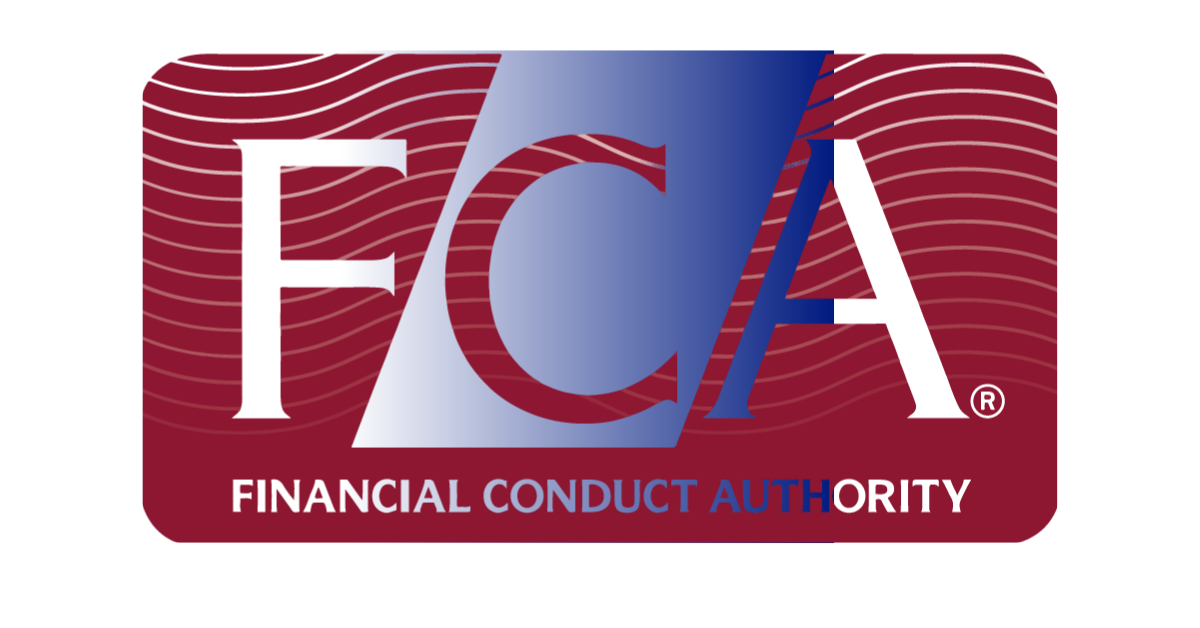Around the world, there is a complex network of connections between financial institutions and every successful U.S. business, investor, or innovator, especially if you lead a fintech company. Therefore, it is most important for you to be educated on what international regulators such as the Financial Conduct Authority (FCA) are and what is required. Suppose you are a fintech startup based in the USA that decides to extend your business operations to London, which is the main European financial center. All of a sudden, terms like “FCA compliance,” “conduct rules,” and “market abuse surveillance” start appearing in meetings. What do they mean?
What Is the Financial Conduct Authority (FCA)?
The UK’s Financial Watchdog—With Global Teeth
The United Kingdom’s Financial Conduct Authority (FCA) is the top regulator overseeing the local financial markets, companies, and the protection of the consumer. Simply put, it is the British analog of the SEC and the CFPB; however, it is not only focusing on the said issues but is putting competitive edge, innovation, and international collaboration at the center.
Established in 2013 as part of a post-2008 financial crisis overhaul, the FCA replaced the Financial Services Authority (FSA) with a bold mandate: to ensure markets work for everyone—not just the suits in boardrooms. Its mission? Threefold:
Protect consumers from scams, mis-selling, and predatory practices.
Enhance market integrity to prevent another LIBOR scandal or market manipulation.
Promote competition, fostering innovation (hello, fintech unicorns) while keeping risks in check.
This is the main thing you should know: The FCA is more than just a UK-based authority. With more than 59,000 entities regulated by it, such as large banks, insurance companies, and fintechs, it holds huge power in finance. If your company plans to deal with the United Kingdom’s market, clients, or stakeholders, know that the FCA is the first place you will be associated with—whether you are aware of it or not.
Why Should Americans Care About the FCA?
Spoiler: It’s Not Just About Brexit
“Wait, why should I, a U.S. entrepreneur, care about a British regulator?” Great question. Here’s why:
The US and UK Are Financial Soulmates
The UK and U.S. are each other’s largest foreign investors. In 2022 alone, cross-border financial services between the two totaled over $1.3 trillion. If you’re a Wall Street bank, a Silicon Valley fintech, or a Main Street investor dabbling in UK assets, the FCA’s rules shape how you operate, report, and innovate.
The FCA Sets Global Trends
The FCA isn’t just a follower—it’s a pioneer. From open banking to crypto regulations, the FCA often leads the charge, creating blueprints that other regulators (including U.S. agencies) later adopt. Ignoring its moves could leave you playing catch-up.
Brexit Redefined the Game
Post-Brexit, the FCA has stepped out of the EU’s shadow, crafting its own rules. For U.S. firms, this means navigating two regulatory frameworks (EU and UK) instead of one. But it also opens doors: The FCA is now more agile, rolling out sandboxes for AI-driven finance and green investment frameworks that attract U.S. players.
Consumer Trust Is Currency
The FCA’s strict consumer protection rules (like the new Consumer Duty requiring firms to “deliver good outcomes”) set sky-high standards. U.S. companies serving UK clients must match these—or risk fines, bans, and reputational carnage.
FCA vs. US Regulators: Key Differences You Can’t Afford to Miss
It’s Not Just Tea vs. Coffee
Sure, the FCA and U.S. regulators like the SEC share similar goals, but their approaches differ in ways that could trip up unwary Americans. Let’s break it down:
| Aspect | FCA (UK) | SEC/CFPB (US) |
| Regulatory Philosophy | Principles-based (“Do what’s right for consumers”) | Rules-based (“Follow the letter of the law”) |
| Innovation Focus | Proactive (e.g., “Regulatory Sandbox” for startups) | Reactive (slower to adapt to crypto/DeFi) |
| Enforcement Style | Public shaming + hefty fines | Fines + legal action, but less public naming |
| Scope | Broader (covers insurance, pensions, crypto) | More fragmented (SEC, CFTC, CFPB, etc.) |
Real-World Example: In 2021, the FCA banned Binance from operating in the UK, citing consumer risks—a move that sent shockwaves through the global crypto market. Meanwhile, the SEC is still grappling with how to classify cryptocurrencies. Lesson? The FCA acts faster on emerging sectors, forcing U.S. firms to adapt or lose access to 67 million UK consumers.
The FCA’s Toolkit: How It Impacts Your Business

From Fines to Fintech Fairy Godmother
The FCA isn’t just an enforcer—it’s a shapeshifter, using a mix of carrots and sticks to steer markets. Here’s how it could affect you:
The Stick: Enforcement That Hurts
- Fines That Bite: In 2022, the FCA slapped financial institutions with over £215 million in penalties. Example: Citigroup’s London branch was fined £61.6 million for flawed trading controls.
- Public Shaming: The FCA’s “Name and Shame” policy publicly censures firms, cratering reputations. Imagine The Wall Street Journal running a story about your compliance failures—yikes.
- Bans and Restrictions: The FCA can ban products (like high-risk crypto derivatives) or even kick firms out of the UK market.
The Carrot: Innovation Partnerships
- Regulatory Sandbox: Since 2016, this program has helped 200+ startups test products in a controlled environment. U.S. fintechs like Wise and Revolut used it to scale globally.
- Green Finance Incentives: The FCA rewards firms aligning with UK climate goals—a golden opportunity for U.S. ESG-focused investors.
Case Study: How the FCA Reshaped a U.S. Giant’s Strategy
When Goldman Sachs Met the FCA
In 2020, the FCA and PRA (Prudential Regulation Authority) fined Goldman Sachs £96.6 million for “serious risk management failures” tied to the 1MDB scandal. Beyond the financial hit, the FCA mandated sweeping changes to Goldman’s UK operations, including:
- Overhauling governance structures.
- Appointing an independent monitor to report directly to the FCA.
- Implementing stricter anti-financial crime controls.
The fallout? Goldman’s London branch became a global case study in cross-border regulatory risk—proving that even U.S. titans aren’t immune to the FCA’s clout.
How U.S. Firms Can Stay on the FCA’s Good Side
Your Survival Checklist
Understand the FCA’s Rulebook
Dive into the FCA Handbook, a labyrinth of 12,000+ pages (yes, really). Key sections:
- COND (Threshold Conditions): Are you “fit and proper” to operate?
- SYSC (Senior Managers Regime): Accountability for execs.
- PRIN (Principles for Businesses): The FCA’s “10 Commandments.”
Embrace the Consumer Duty
Effective July 2023, this rule requires firms to:
- Avoid causing “foreseeable harm” to customers.
- Prove they’re delivering “good outcomes” through data-driven reviews.
Leverage the FCA’s Innovation Wing
Partner with FCA Innovate for tailored support on AI, blockchain, or open banking projects.
Prepare for Climate Disclosures
Align with the FCA’s ESG rules, like TCFD (Task Force on Climate-Related Financial Disclosures), to attract UK investors.
The Future of the FCA: What’s Next for U.S. Stakeholders?
Crypto, AI, and Beyond
The FCA isn’t resting. Here’s what’s coming:
- Crypto Crackdowns: Stablecoins and NFTs are now under FCA scrutiny.
- AI Governance: Expect strict guidelines on algorithmic trading and chatbots.
- Brexit Opportunities: The FCA is rewriting rulebooks to attract U.S. capital post-EU.
Final Word: The FCA Is Your Ally—Not Your Enemy
Love it or hate it, the FCA is a force U.S. businesses can’t ignore. By embracing its rules, you’re not just avoiding fines—you’re building trust with UK consumers, tapping into cutting-edge innovation, and future-proofing your global strategy.
So, the next time someone mentions the FCA, don’t glaze over. Lean in. Ask questions. And remember: In a world where finance knows no borders, regulatory savvy is the ultimate competitive edge.
Ready to Dive Deeper? Visit the FCA’s official site at https://www.fca.org.uk/ or consult a cross-border compliance expert to audit your exposure. The future of finance is global—and the FCA is holding the map.

No responses yet